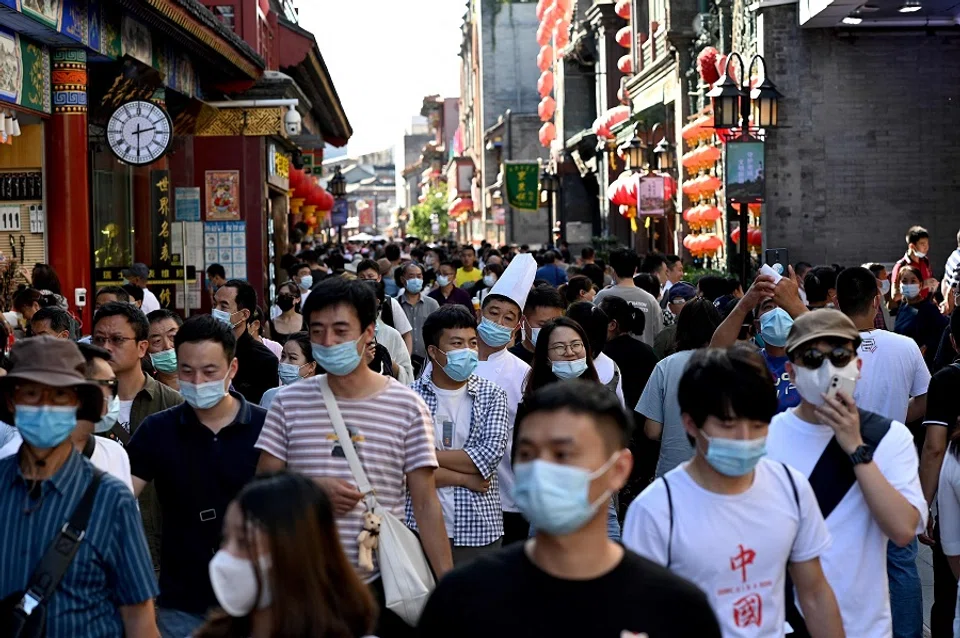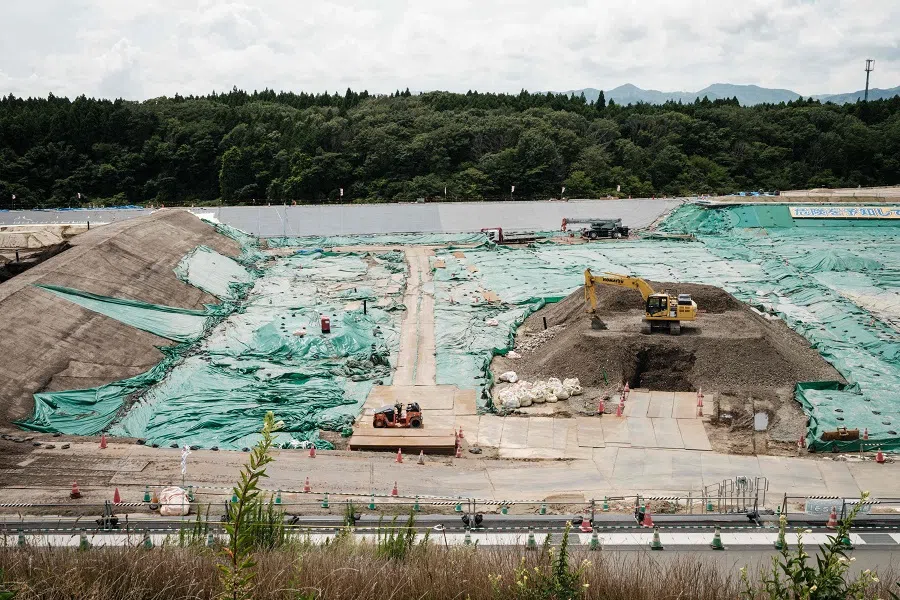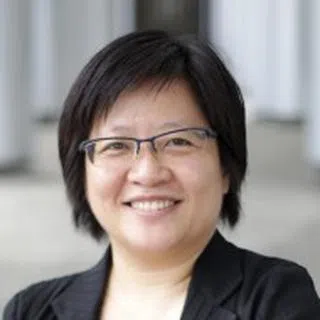Mainland China and Taiwan: The political hot potato of their CPTPP bids
Soon after mainland China put in its official application to join the Comprehensive and Progressive Agreement for Trans-Pacific Partnership (CPTPP), Taiwan followed suit. The CPTPP is an agreement forged between 11 members sans the US when the latter withdrew from the then Transnational Pacific Partnership (TPP). Joining it would require tough internal changes from both mainland China or Taiwan. Who is more committed to the needed reforms? But does that even matter when it will be the political signature that counts from here on? Incoming CPTPP chair Singapore will have its work cut out.

Less than a week after mainland China officially applied to join the Comprehensive and Progressive Agreement for Trans-Pacific Partnership (CPTPP), Taiwan announced out of the blue on 22 September that it has also submitted an official application to join, and asked existing members for their support.
The CPTPP, a high-standard agreement between 11 members having a combined population of 500 million and making up about 14% of the global economy, has instantly become a highly sought-after pact, with three economies "queuing up" for membership. The UK submitted its bid in January this year, a year after Brexit, while mainland China and Taiwan have just submitted their applications one after the other.
Mainland China's massive economy and its potential impact on CPTPP and Asia's trade rules, cross-strait rivalry, as well as ongoing international diplomatic dramas have the world's media sitting on the edge of their seats. Many commentators believe that CPTPP members will have to face the dilemma of choosing sides.
Taiwan's earlier dithering related to domestic concerns
In truth, Taiwan has expressed its interest in joining the CPTPP for quite some time. When Taiwan President Tsai Ing-wen gave her inaugural address in 2016, she vowed to lead Taiwan's membership into the Trans-Pacific Partnership (TPP) as well as the Regional Comprehensive Economic Partnership (RCEP) for which ASEAN was negotiating with mainland China, Japan, South Korea and others at the time. In March 2018 when the CPTPP was signed by the 11 participating countries, Tsai instructed all relevant ministries to spare no effort in preparing for Taiwan's bid to join the CPTPP. But in the following three years, it seemed like it was all talk and no action from the Taiwan side.
Taiwan was being "forced into marriage" by big brother Japan. - Taiwanese radio personality Tang Hsiang-lung

On the contrary, it was the mainland, often seen as being unable to meet the high standards of the pact, that took action instead. On the fifth day after the RCEP was signed in November 2020, Chinese President Xi Jinping announced that China would "favourably consider" joining the CPTPP. During his visit to Singapore between 13 and 14 September, Chinese State Councilor and Foreign Minister Wang Yi reiterated President Xi Jinping's interest in the CPTPP. In response, Singapore's foreign minister welcomed this interest. Within three days, China officially submitted its application to join the CPTPP.
Commenting on Taiwan's subsequent announcement that it has applied to join the CPTPP, Taiwanese radio personality Tang Hsiang-lung used the analogy that Taiwan was being "forced into marriage" by big brother Japan.
Why did he say so? In a Financial Times exclusive report published last week, Japan reportedly expressed unhappiness over Taiwan's delayed application to join the CPTPP. Japan is the largest economy in the CPTPP and holds the rotating CPTPP chairmanship this year. A Japanese diplomat told the Financial Times that Japan hopes to use its rotating chairmanship to help Taiwan join the CPTPP as soon as possible. Otherwise, Taiwan would lose almost any chance of joining once the mainland becomes a member. The diplomat also said that Taiwan has been preparing to join, but the whole membership process may take a year or longer, and it may be too late for Japan to help see through Taiwan's membership application.
It is clear that Japan's message has the intention of heightening Taiwan's sense of urgency and putting the Taiwan government under domestic pressure. It is a form of indirect pressure on Taiwan. But it remains unknown whether Japan knew that mainland China would be acting soon and hence quickly took action.
...opening up its market to agricultural goods from other CPTPP members, especially rice, would trigger domestic political pressure - can the Taiwan government withstand such pressure?

While Taiwan has said that it wants to join the CPTPP, it is indeed in a tight spot. Firstly, there is the sensitive issue of whether Taiwan can lift its ban on food imports from Japanese prefectures affected by the Fukushima nuclear incident as the US and the EU have done. Secondly, opening up its market to agricultural goods from other CPTPP members, especially rice, would trigger domestic political pressure - can the Taiwan government withstand such pressure? It is conceivable that these are some of the conditions that Japan may have imposed on Taiwan.
Caught between a rock and a hard place
On the other hand, the mainland's bid to join the CPTPP last week has also put CPTPP member states that are American allies in a dilemma. While it is difficult to reject the mainland's massive market, both Australia and Canada are in conflict with China, and Japan cannot afford to offend China or the US. Nikkei commentators think that China's bid to join the CPTPP is in itself a curveball aimed at splitting the US and Japan. Simply put, the CPTPP has become another battleground of China-US rivalry.
Under such circumstances, Japan might as well contact the US directly. Kyodo News reported that Japanese Foreign Minister Toshimitsu Motegi met with US Secretary of State Antony Blinken on the afternoon of 22 September in New York, urging the US to rejoin the pact. According to analyses, Motegi would likely have exchanged views with Blinken about the respective applications of the mainland and Taiwan.
Amid an increasingly complex international environment, exercising diplomatic skill to avoid incurring the wrath of others would increasingly become a daily affair for Singapore when it becomes chair.
Genuine commitment to standards of CPTPP?
Between Taiwan and the mainland, who is putting up a show and who is really determined to achieve the standards of the CPTPP and gain membership into the pact?

Looking at their respective records, while the mainland's membership is not looked upon favourably, I believe that Beijing is not just talking about it but is instead hoping to force the country into making domestic reforms via the CPTPP, just like the previous time when it entered the World Trade Organization. After all, the mainland's advantage is in its massive market. It particularly needs to enter the international trade circle to counter the US's containment. As for whether Taiwan can join the CPTPP, that would depend on even more variables, such as its domestic situation and cross-strait relations.
What Singapore should pay attention to is the fact that it will chair the CPTPP next year, after Japan. Now that relevant trade negotiations are already very politicised and three economies are waiting to join the pact, the chairman needs to handle their application procedures and order on the agenda very carefully. Amid an increasingly complex international environment, exercising diplomatic skill to avoid incurring the wrath of others would increasingly become a daily affair for Singapore when it becomes chair.
Related: 'Driving the blade inwards': Why China may join the CPTPP | China's true intentions in wanting to join the CPTPP | China has entered the 'gilded cage' of RCEP and is considering the CPTPP. What's next? | China-US competition: Why small countries will not choose sides | China joining the CPTPP: It's a matter of time



![[Big read] When the Arctic opens, what happens to Singapore?](https://cassette.sphdigital.com.sg/image/thinkchina/da65edebca34645c711c55e83e9877109b3c53847ebb1305573974651df1d13a)

![[Video] George Yeo: America’s deep pain — and why China won’t colonise](https://cassette.sphdigital.com.sg/image/thinkchina/15083e45d96c12390bdea6af2daf19fd9fcd875aa44a0f92796f34e3dad561cc)